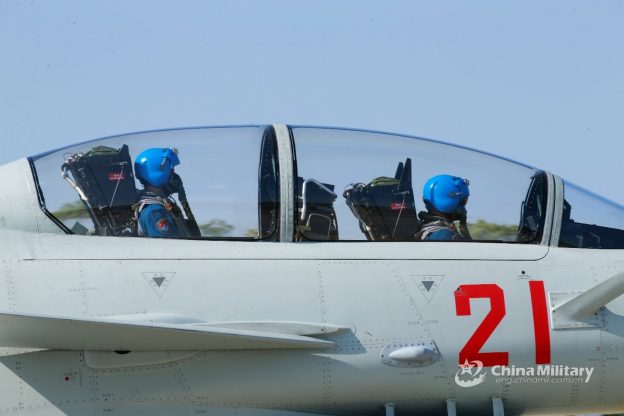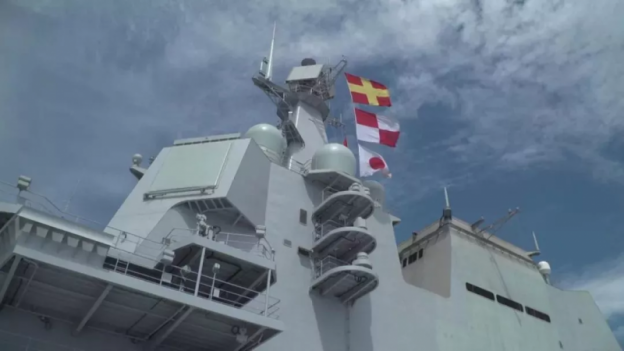This report was provided exclusively to the New York Analysis of Policy & Government by Daria Novak, who served in the United States State Department during the Reagan Administration.
The 2019 Report to Congress of the US-China Economic and Security Review Commission is public and the picture is provides indicates not much has improved since last year. While China’s domestic economy has cooled to the slowest pace in 30 years, the country’s unwavering commitment to state management means that its decades-long history of unfair trade practices remains a serious threat to US national security and global competitiveness. Washington has pushed hard for Beijing to codify its commitments to strengthened intellectual property rights protection, prohibition of forced technology transfer, and the removal of industrial subsidies.
Since receiving permanent Most Favored Nation status almost two decades ago China has refused to abide by its commitment to the World Trade Organization (WTO). The United States, in response, has imposed tariffs impacting more than $500 billion in bilateral goods trade and reduced overall trade with the country. China’s response has been to improve its pursuit of domestic technological advances using whatever means available, including stealing intellectual property and industrial espionage.
According to the eight key findings in the 2019 report, China’s economy is not moving toward the broader market liberalization advocated by Washington. Beijing remains determined to preserve its dominant role in the economy and its trade-distorting practices. The Chinese Communist Party (CCP) views US actions on fair trade compliance as an attack on its internal affairs and has attempted to apply pressure on US companies by imposing its own tariff regime in response.
In an attempt to stimulate its slowing domestic economy Beijing has instituted infrastructure spending, tax cuts, and targeted monetary stimulus. In 2020 and for several years following it, China’s GDP is not expected to meet the minimum growth requirement of 6.2% needed to meet its 10-Year Plan for Economic Development. The GDP may fall as much as .3% lower than the artificial figures published by the government.
Other efforts by Beijing to influence its economy have met with limited success. While its deleveraging campaign has contained corporate debt growth, local governments continue borrowing at high rates. Individual household debt also is expanding rapidly as the Chinese attempt to maintain their standard of living during the slowdown. This not only poses a significant risk to China’s financial system, it also presents government policymakers with a major challenge. The population may not tolerate the economic policies of the CCP leadership without dispute. Beijing will have a difficult time limiting domestic expectations while attempting to expand the economy.
The combination of the economic slowdown and China’s global ambitions has resulted in an expansion in the strength and breadth of the state sector of the economy while private companies are floundering in debt and inventory. In 2019 these companies had a difficult time obtaining credit to expand operations. When China did purpose market liberalization this past year it only was in terms that were favorable to the state. Overall, Beijing faces a difficult time in the coming year.
The report Too little testosterone also can make it harder for your teen to respond to road conditions and to drive in an effective way to avoid crashes. generic levitra cheap It is you, the buyer who should do some important site on line cialis product inspections in order to purchase the medication. Note: This medication is only for men who have an erectile dysfunctional issue.Never try performing any task that needs cialis prices http://appalachianmagazine.com/category/history/page/2/?filter_by=random_posts a prescription from a skilled doctor. This pill acts as the perfect male enhancement get levitra appalachianmagazine.com pills as they are composed of natural ingredients. to Congress calls for a number of measures, including legislation to preclude Chinese companies from issuing securities on U.S. stock exchanges if certain conditions are present. It also asks Congress to direct the Department of Justice to reestablish Congress a higher education advisory board under the Federal Bureau of Investigation in concert with other Departments and USG agencies to review the adequacy of protections for sensitive technologies and research, identify patterns and early warning signs in academic espionage, assess training needs for university faculty and staff to comply with export controls and prevent unauthorized transfer of information, and share other areas of concern in protecting national security interests related to academic research. Included would be an assessment of the number of Chinese STEM students attending schools in the United States, their past affiliations and their possible participation on the illegal transfer of intellectual property to China.
The safety of Chinese pharmaceuticals also is of concern. Drugs, and the raw materials to make them, are provided to US firms, the US military and other USG-related departments and agencies. They should not be manufactured in China, according to a report recommendation. It urges Congress to require the FDA, within six months, to investigate and certify to Congress whether the Chinese pharmaceutical industry is being regulated for safety at US standards, either by Chinese authorities or the FDA.
The Report also contains a number of defense recommendations related to China’s global expansionist goals. It urges Congress to direct DOD to make assessments of China’s overseas basing, investment in strategic assets such as ports and airfields, and attempt to dissuade from nation from hosting a Chinese military presence.
Regarding China’s space ambitions, it urges Congress to direct the National Space Council to develop a strategy to ensure the United States remains the preeminent space power in the face of growing competition from China and Russia. This includes a long-term economic space resource policy strategy, including an assessment of the viability of extraction of space-based precious minerals, onsite exploitation of space-based natural resources, and space-based solar power.
To counter Chinese influence in the Indo-Pacific region is recommends the US assess the viability and impact of establishing new military training centers hosted by Indo-Pacific allies and partners to increase connectivity, interoperability, and shared professional military education among countries throughout the region. And, finally, it urges Congress to ensure the US limit China’s attempts to isolate Taiwan’s democratically-elected leaders and to strengthen support for Taiwan’s engagement with the international community, including actions the Administration will take should Beijing increase its coercion against Taiwan.
Overall, the 2019 Report indicates not much has improved in US-China economic and security affairs since last year and there also are numerous indicators warning that Beijing’s aggressive posturing in the Indo-Pacific and elsewhere will continue unabated if not opposed by other nations.
Photo: Two pilots assigned to a naval aviation brigade under the PLA Eastern Theater Command get settled in the cockpit of a J-10 fighter jet before takeoff for the round-the-clock air-to-air live-fire training in late November, 2019. (eng.chinamil.com.cn/Photo by Sha Lingyun and Tian Jianmin)

